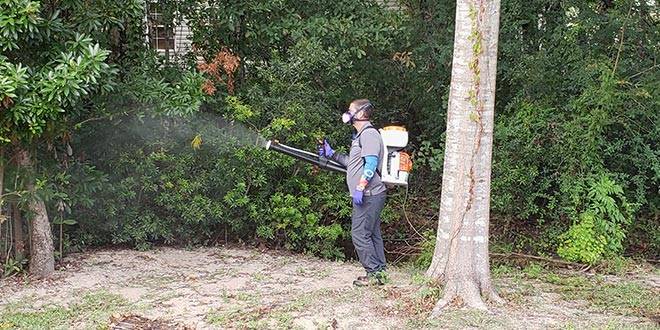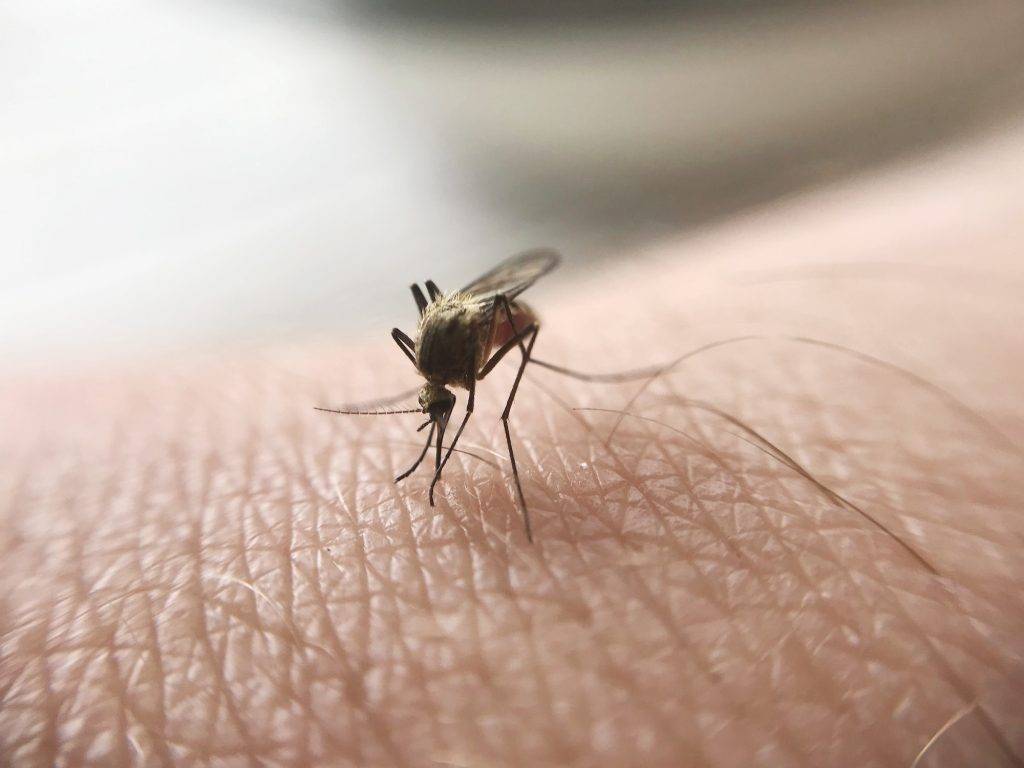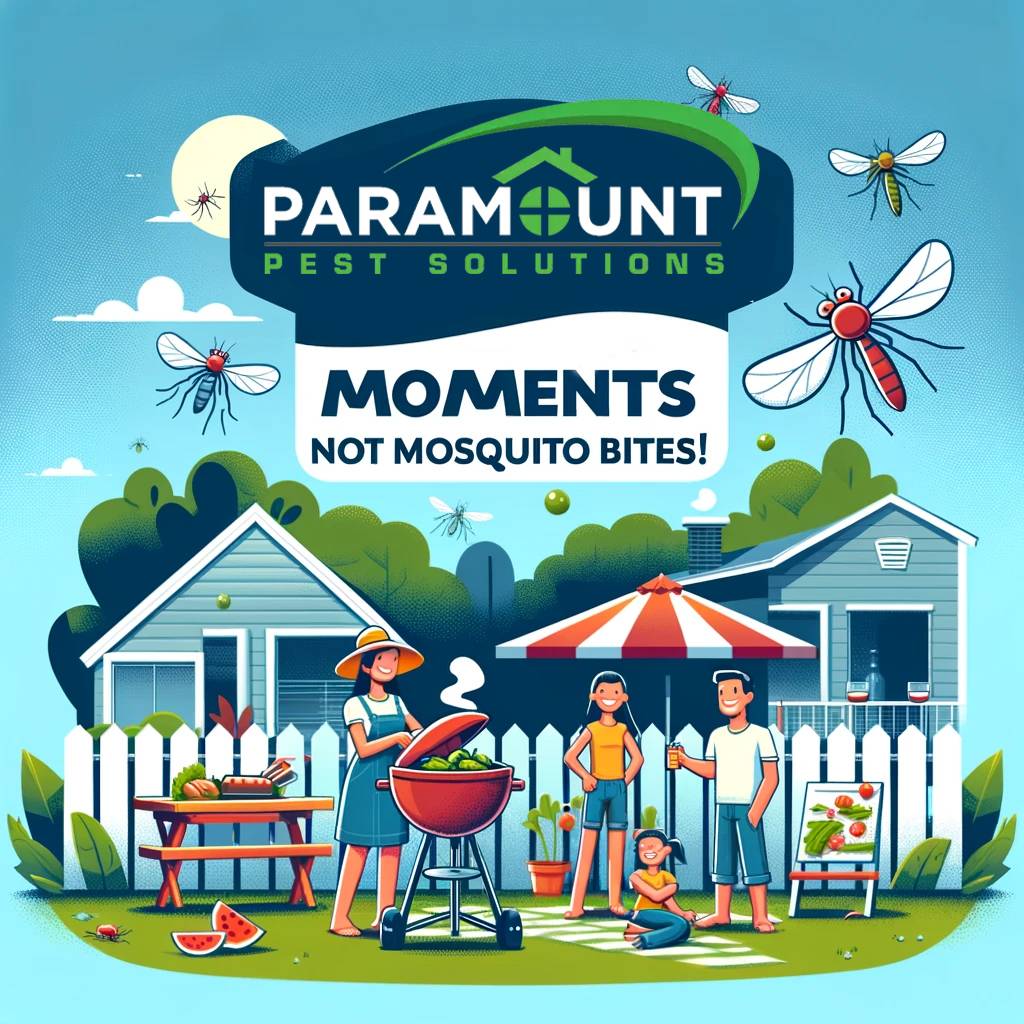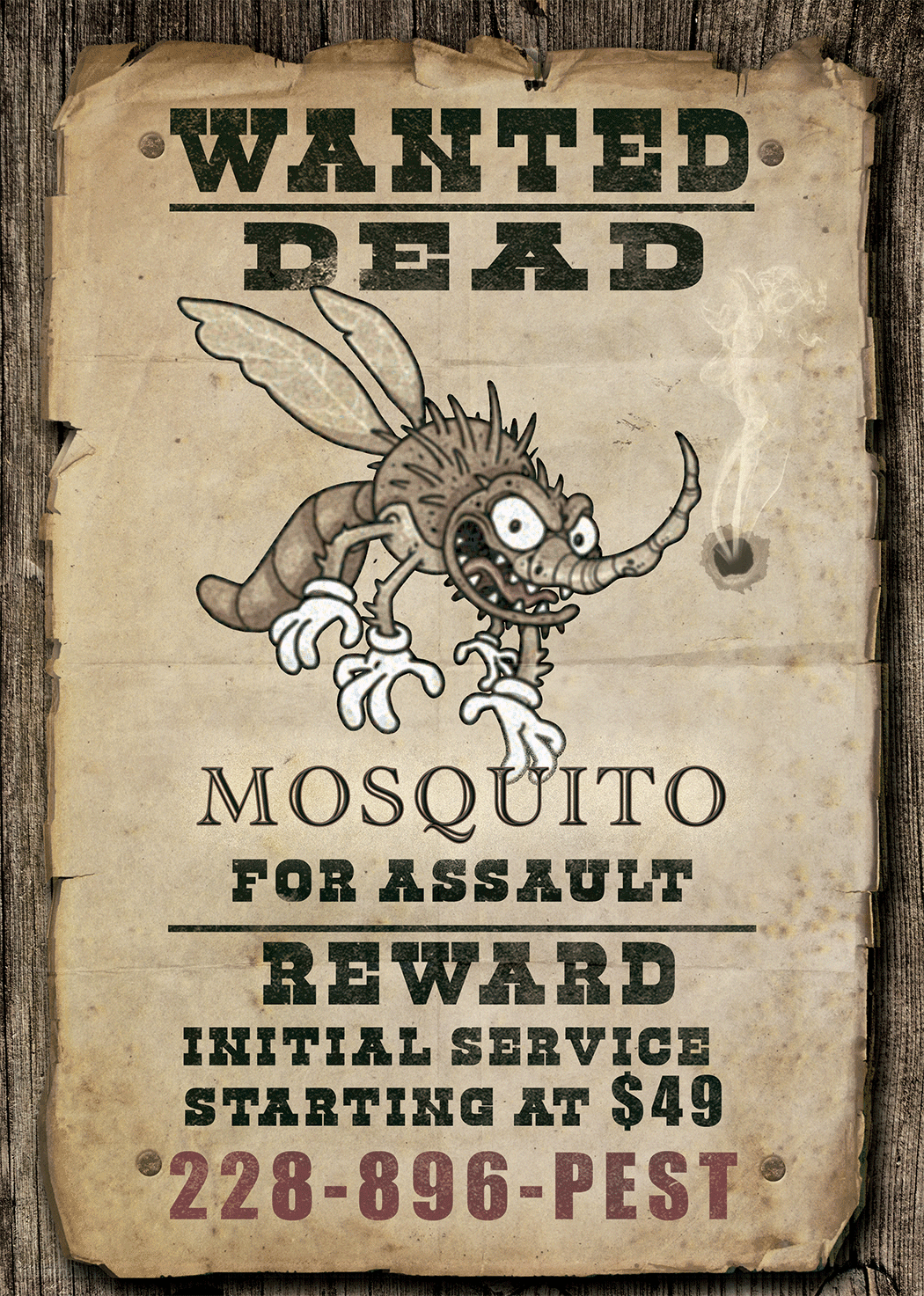
Mosquitoes are more than just a nuisance; they pose significant health risks by spreading diseases like West Nile virus, Zika virus, and dengue fever. For homeowners, mosquitoes can make outdoor spaces uncomfortable and limit the enjoyment of backyards, patios, and gardens. Effective mosquito control is essential to safeguard your family and reclaim your outdoor areas. This guide provides comprehensive strategies for controlling mosquitoes and creating a comfortable, mosquito-free environment.
Mosquito control involves understanding the biology and behavior of these pests to implement effective prevention and treatment measures. By taking a proactive approach, you can reduce the mosquito population around your home and enjoy outdoor activities without constant annoyance.
Key Points Covered
- Understanding Mosquito Behavior and Life Cycle
- Identifying Common Mosquito Breeding Sites
- Effective Mosquito Control Techniques
- Professional Mosquito Control Services
- How Paramount Pest Solutions Can Help
Glossary of Terms
- Larvicide: A chemical used to kill mosquito larvae before they develop into adult mosquitoes.
- Adulticide: A chemical used to kill adult mosquitoes, often applied as a spray.
- Repellent: A substance applied to skin or clothing to deter mosquitoes from biting.
- Standing Water: Any pool of water that remains still and can serve as a breeding ground for mosquitoes.
- Integrated Pest Management (IPM): An environmentally friendly pest control approach that combines various strategies for effective long-term control.
Understanding Mosquito Behavior and Life Cycle
Mosquitoes undergo four distinct life stages: egg, larva, pupa, and adult. Understanding this life cycle is crucial for implementing effective control measures:
- Egg Stage: Female mosquitoes lay eggs in or near standing water. These eggs can hatch in as little as 24 to 48 hours under favorable conditions. Mosquito eggs are incredibly resilient and can survive dry conditions for several months, waiting for the right conditions to hatch.
- Larval Stage: Once hatched, mosquito larvae, also known as “wigglers,” live in water and feed on organic matter, including algae and microorganisms. This stage lasts about a week, depending on environmental conditions. Larvae breathe through a siphon tube, sticking their tails above the water’s surface.
- Pupal Stage: Larvae transform into pupae, often called “tumblers,” a transitional stage before emerging as adult mosquitoes. Pupae do not feed and typically develop into adults within two to three days. During this stage, the mosquito undergoes metamorphosis.
- Adult Stage: Adult mosquitoes emerge from pupae and rest on the surface of the water to dry their wings before flying. Adult females seek blood meals to obtain the protein needed for egg production, while males feed on nectar. Females are typically attracted to hosts by the carbon dioxide, heat, and body odor emitted by animals and humans.
Behavior: Mosquitoes are most active during dawn and dusk, although some species are daytime biters. They are attracted to humans by body heat, carbon dioxide, and body odor. Understanding their activity patterns and behavior can help you avoid peak mosquito times and implement targeted control measures.

Identifying Common Mosquito Breeding Sites
To effectively control mosquitoes, it is crucial to identify and eliminate potential breeding sites around your property. Common breeding sites include:
- Stagnant Water: Any source of standing water can become a breeding ground for mosquitoes. This includes birdbaths, clogged gutters, plant saucers, and rain barrels. Even small amounts of water can support mosquito breeding.
- Natural Water Sources: Ponds, ditches, and marshy areas can support mosquito populations. Keeping these areas clean and adding mosquito-eating fish, such as Gambusia, can help reduce breeding. Installing aerators can also prevent mosquitoes from laying eggs by disturbing the water’s surface.
- Man-Made Containers: Discarded tires, buckets, and other containers can collect rainwater and become breeding sites. Regularly inspect and empty these items. Invert or cover containers when not in use to prevent water accumulation.
- Vegetation and Debris: Overgrown vegetation and debris can hold moisture and provide shelter for adult mosquitoes. Keep your yard trimmed and free of excess foliage. Prune shrubs and keep grass short to reduce the number of resting sites for adult mosquitoes.
By regularly inspecting your property and eliminating standing water, you can significantly reduce the mosquito population.
Effective Mosquito Control Techniques
Implementing a combination of control techniques can effectively reduce mosquito populations and protect your home. Here are some proven strategies:
- Eliminate Standing Water: Regularly empty and clean containers that collect water, such as birdbaths, gutters, and flowerpots. Ensure that your property has proper drainage to prevent water from pooling. Fix any leaks in outdoor faucets and hoses to eliminate unintended water sources.
- Use Larvicides: Apply larvicides to standing water that cannot be drained, such as ponds and rain barrels. These products target mosquito larvae and prevent them from developing into adults. Larvicides are an environmentally friendly option that targets mosquitoes at their most vulnerable stage.
- Install Mosquito Traps: Use traps to capture and kill mosquitoes. These devices often use light, carbon dioxide, or heat to attract mosquitoes and can reduce their numbers in outdoor areas. Position traps in shaded areas away from human activity for optimal effectiveness.
- Apply Mosquito Repellents: Use repellents containing DEET, picaridin, or oil of lemon eucalyptus on exposed skin to prevent mosquito bites. Wear long sleeves and pants when possible to reduce exposed skin. For added protection, consider treating clothing and outdoor gear with permethrin.
- Install Screens: Ensure that windows and doors are fitted with tight screens to keep mosquitoes out of your home. Repair any holes or tears in existing screens. Use screen doors on patios to provide ventilation while keeping pests at bay.
- Use Outdoor Fans: Mosquitoes are weak flyers and can be deterred by strong air movement. Place fans on patios and decks to create a breeze that keeps mosquitoes away. Fans also help disperse carbon dioxide and odors, making it more difficult for mosquitoes to locate you.

Professional Mosquito Control Services
While DIY methods can be effective, professional mosquito control services offer several advantages for more comprehensive protection:
- Expert Evaluation: Professionals can assess your property to identify breeding sites and recommend targeted treatments based on the specific mosquito species present. This tailored approach ensures the most effective results.
- Advanced Products and Equipment: Professional services use specialized products and equipment, such as backpack sprayers and foggers, to deliver treatments that effectively reduce mosquito populations. These tools allow for precise application and thorough coverage of large areas.
- Customized Treatment Plans: Professionals develop customized plans that integrate multiple control methods to address your specific needs and provide long-term protection. Treatment plans often include ongoing monitoring and adjustments based on seasonal mosquito activity.
- Ongoing Monitoring and Maintenance: Professional services offer ongoing monitoring and maintenance to ensure mosquito populations remain under control and quickly address any new infestations. Regular inspections help catch and prevent potential breeding sites.
Paramount Pest Solutions provides expert mosquito control services that utilize environmentally friendly techniques and proven strategies. Learn more about our Services and how we can help you enjoy a mosquito-free outdoor space.
Comparing Mosquito Control Techniques
| Control Technique | Effectiveness | Cost Range | Duration of Effect | Eco-Friendliness |
| Larvicides | High | $50-$200 | Long-term | High |
| Mosquito Traps | Moderate | $50-$150 | Medium | Moderate |
| Repellents | Moderate | $5-$20 | Short-term | High |
| Professional Services | High | $300-$600 | Long-term | High |
| Outdoor Fans | Moderate | $30-$100 | Immediate | High |
Fun Facts About Mosquitoes
- Ancient Creatures: Mosquitoes have been around for over 100 million years, evolving alongside dinosaurs and adapting to various environments. Their resilience and adaptability have made them one of the most successful insect species on the planet.
- Diverse Species: There are over 3,500 species of mosquitoes worldwide, each with unique behaviors and habitats. However, only a few species are responsible for transmitting diseases to humans.
- Blood Meal Preference: Only female mosquitoes bite humans and animals. They require the protein from blood to produce eggs, while male mosquitoes feed on nectar. Females can consume up to three times their body weight in blood during a single meal.
- Mosquito Speed: Despite being tiny, mosquitoes can fly up to 1.5 miles per hour and travel several miles in search of food. They are known for their persistence and ability to track hosts over long distances.
- Impact on Humans: Mosquitoes are considered the deadliest animals on Earth due to their role in spreading diseases that cause millions of deaths annually. They are responsible for more human suffering than any other organism.
Frequently Asked Questions
- Why are mosquitoes attracted to humans?
Mosquitoes are attracted to body heat, carbon dioxide, and body odors, which help them locate potential hosts for blood meals. Dark clothing and movement can also make you more noticeable to mosquitoes. - What are some natural mosquito repellents?
Natural repellents include essential oils such as citronella, eucalyptus, lavender, and lemongrass. These can be used in candles, sprays, or lotions to deter mosquitoes. Planting mosquito-repelling plants like marigolds and basil can also help. - Can mosquitoes transmit diseases to pets?
Yes, mosquitoes can transmit heartworm disease to dogs and cats, making it important to protect your pets with preventative treatments. Consult your veterinarian for the best heartworm prevention options for your pets. - How often should I apply mosquito repellent?
Follow the instructions on the repellent label, but generally, reapply every few hours, especially if sweating or swimming. Repellents can lose effectiveness over time, so regular application is necessary for continued protection. - Do all mosquitoes carry diseases?
Not all mosquitoes carry diseases, but certain species are vectors for viruses like West Nile, Zika, and malaria. It’s important to minimize exposure to all mosquito bites. Understanding the specific mosquito species in your area can help you assess risk levels. - Can I eliminate mosquitoes entirely from my yard?
While it is challenging to eliminate mosquitoes completely, you can significantly reduce their population through diligent control measures and professional services. A combination of prevention and treatment strategies is key to effective mosquito management. - Are electronic mosquito repellents effective?
Electronic repellents, such as ultrasonic devices, have not been proven consistently effective in scientific studies. Instead, focus on proven methods like repellents and physical barriers. - When is the best time to treat my yard for mosquitoes?
The best time to treat your yard is early in the morning or late in the afternoon when mosquitoes are most active and likely to come into contact with treatments. Regular treatments during peak mosquito seasons can maintain low populations. - What can I do to prevent mosquito breeding indoors?
Keep windows and doors closed or screened, eliminate indoor standing water, and use fans to create air movement that deters mosquitoes. Regularly check for leaks or damp areas that could provide breeding opportunities. - How can I protect my family from mosquito-borne diseases while traveling?
Use insect repellent, wear protective clothing, and stay in accommodations with proper screening or air conditioning. Research the specific risks in your travel destination and take necessary precautions, such as vaccinations or prophylactic medications.

Enjoy a Mosquito-Free Backyard with Paramount Pest Solutions
Creating a mosquito-free backyard is essential for enjoying outdoor activities without the annoyance and health risks associated with mosquito bites. Paramount Pest Solutions offers expert mosquito control services that are tailored to your specific needs, ensuring effective and environmentally friendly solutions. Our team of experienced professionals is committed to helping you reclaim your outdoor spaces. Don’t let mosquitoes ruin your backyard fun—contact us today to schedule a consultation and start enjoying your yard again.
Paramount Pest Solutions proudly serves Gulfport, Biloxi, Ocean Springs, Pascagoula, D’Iberville, and surrounding areas. Visit our Service Areas page to learn more about the communities we serve and how we can assist you.
